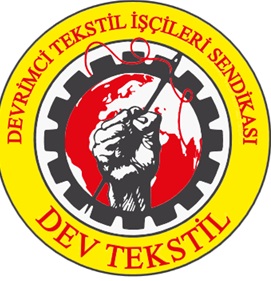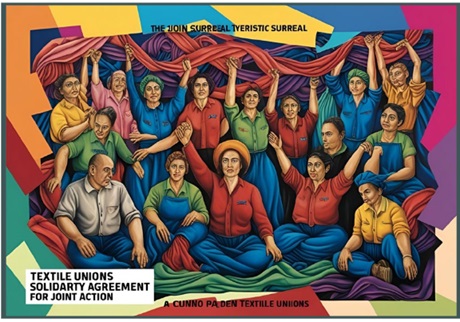Dr. Derya Uğur
President of the General Health Workers‘ Union – TÜRKİYE
The privatization and marketization of institutions, which are established with the taxes and hard work of the people and which must be operated to serve the nation, by the rulers of the state leads to strange results in every field, but the painful picture caused by privatization in the field of health care should be dealt with under a special topic. Because the phase of “you can get health care if you have money”, which the government and capital have pushed our country into by joining efforts, is not only limited to the usurpation of citizens‘ right to health care, but also brings along the criminalization of health care.
I believe that Einstein’s statement “if you can’t explain something simply, you don’t fully understand it” is very true. Therefore, I would like to start my article with a simple composition in order to make the matter more understandable:
Regardless of the country, the state exists to help people live together in peace and meet their basic needs. The state should ensure that all citizens have free and equal access to basic services such as health, education and justice through indirect and direct taxes. Since the 18th century Magna Carta, people have had the right to ask why they are taxed and where it is spent, which is a great achievement for civilization. We can easily comprehend the interconnectedness of the tax-service-citizen triangle, if we consider that in many countries around the world today, whendisasters strike, those who govern the state do not send an Iban to their citizens and do not answer “we are not accountable to you” when asked, for example, “where are our earthquake taxes?”
So where are we in this? Come and let’s think about the answer together:
In our country, ranked in the top 5 of the world’s most complex and burdensome tax systems, health care has almost ceased to be a public service. This means that you pay taxes and expect the fulfillment of your right to access health care, which is emphasized in the Constitution, but you are confronted with capital, which has made the field of health a profit center, and public health mechanisms, which have been weakened day by day in order to almost oblige you to it. Citizens are unable to receive the health services they need, health workers are forced into poverty and devaluation, and many vital treatment methods and medicines are not covered by the state. This easily extendable list brings us to the era of “you can get health care if you have money”. We used the term “criminalization” in the title, perhaps it would not be an exaggeration to note this picture as the biggest criminalization. So is the criminalization in the field of health care due to privatization limited to these issues? Aren’t there sub-headings that are just as serious and important? Of course there are:
Once you turn anything into a commodity and open it to the market, it is inevitable that those seeking profit will manipulate the price and quality of that thing in a thousand different ways. When it comes to health care, the citizen is suddenly transformed from a subject into an object, the patient into a customer, and healthcare workers into slaves.
Profit is put at the center of this field, which should be centered on human life, and while the essence of the Hippocratic Oath is to do your best for treatment without discriminating who needs it, treatment becomes a luxury rather than a right.
Let’s speak more frankly and clarify the picture we have in health, because without the right diagnosis it is not possible to talk about the right treatment:
It is clear that we have reached this point due to years of deliberate policies pursued by the political power. The transformation in the health care, performance based remuneration, and many other disastrous moves that we have stood against for many years, are taking health care away from the public sector. Public institutions and organizations offering health services have been left to their own resources and neglected. There are not as many health workers as needed and thus both health workers and citizens are victimized. City hospitals, which are established at the farthest points of cities with the logic of shopping malls, instead of strengthening existing health institutions, also make it difficult to actually access services. Public health institutions around these places have been weakened and their capacities reduced so that the places constructed with the Build-Operate-Transfer model by crony capital can make a profit. The method of building hospitals with guaranteed minimum number of patients for cronies has come to the forefront instead of state hospitals with guaranteed service. Citizens were forced into poverty and unhealthy conditions, while the crony capital, which settled in this field like a vampire, made a profit.
The country has witnessed a mushrooming of private hospitals in the last 10 years and the country’s Health Minister has underlined that private hospitals are important and that the increase in the number of private hospitals is significant. Failure to properly inspect hospitals whose owners are loyal to the government has reduced the homogeneity, scientificity and reliability of health care across the country. Private hospitals have instructed health workers to request a large number of tests and examinations from patients.
Hospitals started to rent some units of health service facilities within the building to companies. Misdiagnosis and mistreatment complaints have increased. Primitive practices such as cupping and leeching, which should have disappeared hundreds of years ago, have replaced scientific treatment methods. Non-scientific methods have been brought to the spotlight under the name of alternative medicine, both the health of the public has been put at further risk and health workers who have devoted their lives to scientific treatment methods have been put in the background. Cults have been given the chance to open hospitals and many of these hospitals are used both to expand their networks and to launder money.
The uncontrolled provision of health services and the abandonment of health services to the greed of capital for profit has thrown health workers into an endless cycle of mobbing and usurpation of rights. In public institutions, health workers are subjected to the pressure of unqualified managers and in the private sector they are subjected to unemployment baton hanging over their heads.
We need to put a name to it: The list above is a sort of criminal record, a description of an organized and well-established network.
To sum up; in terms of cause and effect, privatization in health has served as a black tree and yielded bitter fruits, exactly as planned by political Islam and capital.
Privatization in health care is theft: Feeding capital using public services that should be given free of charge to the public is stealing from the pockets of the people.
Privatization in health care is unlawful: It is the usurpation of the right of the citizen to free health care and the professional rights of health workers.
Privatization in health care is organized crime: The lack of supervision and the focus on profit leads to other crimes, just as a snowflake thrown from the top of a mountain turns into an avalanche at the foot of the mountain.
Privatization in health is the disease of the system. In the same way that curing many diseases starts with getting rid of the conditions that cause them, a public transformation in health is essential to cure this disease. As Genel Sağlık-İş (General Health Workers‘ Union), we underline that this is not only about sick citizens or health workers, but also about the country. Despite a thousand impossibilities, our young Republic, which was founded in such a way that its vision in the field of health would make the European countries look up to it with its vision, will achieve its ‘health’ only through the shoulder-to-shoulder struggle of the health workers and the people.
If we consider the privatization of health care as a disease and the bizarre picture we are seeing today as the symptoms of it, the prescription is an organized and determined struggle. Stay in ‘health’.











